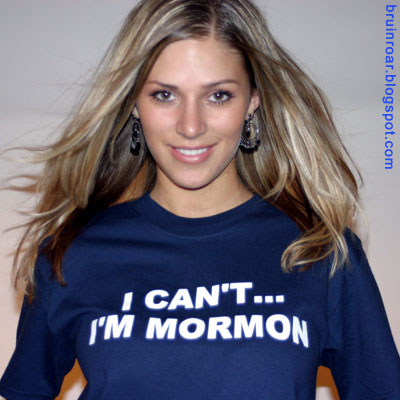Normally, I admire universities that honor tradition and history, especially in sports. So many schools and athletic departments are misguided by winning trophies, making money and acting like a business, rather than developing young student-athletes.
However, in the circumstance of former Brigham Young University basketball player Brandon Davies’ dismissal from the team for violating its Honor Code, I feel like BYU is incredibly ignorant. In Pat Griffin’s blog post “Being LGBT at BYU,” she discusses Davies’ situation. He is not LGBT, but the BYU Honor Code has a section on homosexual behavior: it is “inappropriate,” as are “all forms of physical intimacy that give expression to homosexual feelings.”
Honor Code? More like Dis-Honor Code. By not recognizing homosexual students and/or athletes on its campus, BYU is a joke of a
I understand that these rules have been in place for a long period of time, and that they mean a great deal to the institution, but it seems like the school really needs to reevaluate this document. Time passes, things change, the world evolves. Rules that were applicable when this code was created may not be appropriate
Reading the section of the Honor Code regarding homosexual behavior honestly makes me feel ill. I can’t believe a school could be so hypocritical. As Dr. Griffin said, it is a violation of the code for two students of the same sex to hold hands (displaying homosexual feelings of intimacy) but a heterosexual couple would actually have to have intercourse to violate the code.
I also understand that students and student-athletes willingly sign this code when choosing to attend school at BYU. But one thing is for sure—if I were gay, there’s no way I would be enrolling there.
The institution is suffering from a lot of negative publicity from this incident. We have talked about hegemonic power in class, and I think this situation is being controlled by it. LGBT issues like this one are constantly looked at from the dominant ideology of the population (and mass media), maintaining power and consent in those dominant opinions.
I compare this situation to the one in Emily Badger’s article “In the Spirit of Title IX of our textbook (p. 348). The University of Maryland is adapting its athletic policies to coordinate with the times, rather than sticking to outdated ideas. It is fighting the NCAA and the Office of Civil Rights to promote its cheerleading team to varsity sport status in order to grant these athletes scholarships. I believe that spirit squads (cheerleaders, dance team and mascots) should be considered varsity athletes, because they practice everyday, in-season and out, weight train, sustain injuries, perform at athletic events and compete in their own competitions as well. Not to mention they balance classes, jobs and social lives like every other student-athlete.
Nearly every university does not consider cheerleading a sport. Something tells me that BYU and its old school policies would have no tolerance for giving power to spirit squads like Maryland is doing. I think this type of progress should be celebrated, and that BYU should update its “Honor Code” to include a large group of people instead of alienating them.
by Robbie Lehman







